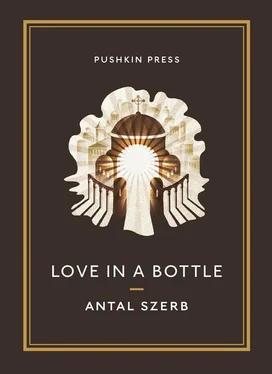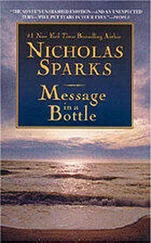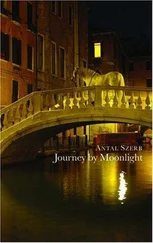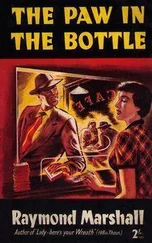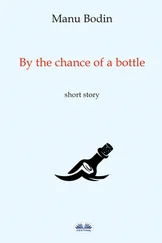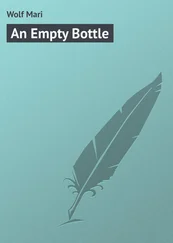Antal Szerb - Love in a Bottle
Здесь есть возможность читать онлайн «Antal Szerb - Love in a Bottle» весь текст электронной книги совершенно бесплатно (целиком полную версию без сокращений). В некоторых случаях можно слушать аудио, скачать через торрент в формате fb2 и присутствует краткое содержание. Год выпуска: 2013, Издательство: Pushkin Press, Жанр: Классическая проза, на английском языке. Описание произведения, (предисловие) а так же отзывы посетителей доступны на портале библиотеки ЛибКат.
- Название:Love in a Bottle
- Автор:
- Издательство:Pushkin Press
- Жанр:
- Год:2013
- ISBN:нет данных
- Рейтинг книги:5 / 5. Голосов: 1
-
Избранное:Добавить в избранное
- Отзывы:
-
Ваша оценка:
- 100
- 1
- 2
- 3
- 4
- 5
Love in a Bottle: краткое содержание, описание и аннотация
Предлагаем к чтению аннотацию, описание, краткое содержание или предисловие (зависит от того, что написал сам автор книги «Love in a Bottle»). Если вы не нашли необходимую информацию о книге — напишите в комментариях, мы постараемся отыскать её.
and
.
Love in a Bottle — читать онлайн бесплатно полную книгу (весь текст) целиком
Ниже представлен текст книги, разбитый по страницам. Система сохранения места последней прочитанной страницы, позволяет с удобством читать онлайн бесплатно книгу «Love in a Bottle», без необходимости каждый раз заново искать на чём Вы остановились. Поставьте закладку, и сможете в любой момент перейти на страницу, на которой закончили чтение.
Интервал:
Закладка:
A few seconds later Lancelot shuddered violently. His entire body and soul were torn with pain. His knees shook, his head buzzed and the world darkened before his eyes.
“I have lost the Queen’s favour!” he gasped. He clutched his throat and dashed out without so much as a word of farewell.
The pain was so intense he had difficulty staying on the horse. His tears flowed, and he lowered the crest of his helmet so that no one would notice his shame. But they flowed so copiously that they leaked out under the visor and ran down his armour.
And he was happy.
1935
THE INCURABLE
PETER RARELY was on his way home by train from Inverness in the Scottish Highlands, where he supported a course for students on the bagpipes, at his own expense, since everyone was complaining that with the advance of the gramophone and the radio this illustrious and ancient form of music was dying out. He had just been up for the closing ceremony and was feeling very pleased with the way things had gone. If only my bear sanctuary would do as well, he mused. Another of his great concerns was that these remarkable animals had become extinct in the British Isles, and he had made a home in the Welsh forests for some bears imported from Transylvania.
But his main worry was his number-counters. He had hired some unemployed people to count up to 7,300,000 without stopping. Two had already given up, three were still counting, but when he had left London even the best of them had only managed something like 1,250,000. Where might he have got up to since?
In the express dining car he caught sight of a familiar face. It was the writer Tom Maclean. Maclean was sitting on his own, sipping spoonfuls of mock turtle soup, gazing thoughtfully into the distance, and jotting down the occasional word on his notepad.
“May I?” Rarely asked, settling himself down beside the writer. “I’m not disturbing you?”
“You certainly are, very much so,” Maclean replied with obvious delight. “Please stay and disturb me some more. It would be a real kindness.”
Rarely began to feel somewhat alarmed. The thought had flashed through his mind that he might not be the most eccentric person on the train.
“Because, you see, I’m working,” Maclean continued. “I’m preparing notes for a radio broadcast about my Scottish experiences. At least while I’m talking to you I won’t be working. Sir, the amount I have to do is intolerable. I’m fed up with myself, absolutely fed up. I’ve just been to Scotland for a bit of a rest. I tell you — I was there for a month — in that time I translated a novel from the French, wrote two essays and a novella, eight sketches for the Morning Glory , six book reviews for the Spectator and ten longer articles for a forthcoming lexicon entitled Women, Children and Dogs in the Service of Humanity . And I’ve still got two radio talks waiting to be done.”
“That’s very interesting,” said Rarely. “I always thought that writers like you lay around all day waiting for inspiration, and then wrote only once it had struck. You seem to have a lot more to do than my own rather simpler sort of millionaire.”
“I’ve no idea how hard a millionaire works, because I heartily dislike those sort of people, present company always excepted, of course. But the number of things I have to deal with has become more than I can bear. You’ve just heard what my holiday consisted of. You can imagine how much I do when I’m actually working. I have to submit two novels to my publisher every year, three articles for the paper every week… then there are my book reviews and reader’s reports. I have to dash off the odd novella to show that I am still a creative writer, plus the odd bit of scholarship, so that I don’t get dulled by all the other writing; oh, yes, and the publicity notices for my friend’s books, and the little demolition jobs on those by my enemies… What does all that come to?”
“Monstrous. How do you manage it? When do you do all this writing?”
“You should really be asking, when do I not? I fall asleep writing, and wake up writing. I plan my hero’s fate in my dreams, and the moment I open my eyes the signing-off phrase for my radio broadcast comes into my head.”
“And when do you live?”
“Never. I’ve no time for sport, and none for love. For years the only women I’ve spoken to have been the ones bringing manuscripts, and believe me, they aren’t the most congenial. But that’s not the real problem. The problem is finding time to read.”
“But you’ve just been telling me about your book reviews and reader’s reports… You must surely have to read those, at least.”
“Oh yes, sir, I read an appalling amount — six or seven hours a day. But only the sort of things that publishers and editors lumber me with, or books I need for something I’m writing. Do you know, I would really love to read a book purely for its own sake. Something that’d be of no use to me whatsoever. The stories of Hans Christian Andersen, for example. For years I’ve been dying to read The Ugly Duckling and I’ve never got round to it.”
Rarely pondered this for a moment, then blurted out:
“But why the devil do you work so hard?”
“For a living, my dear sir, to make a living. You of course wouldn’t know this, but ordinary people have to earn their crust. With you, its almost automatic. I’m not a popular writer, my books aren’t suitable for turning into films, I don’t have the sort of brazenness that would enable me to write plays. I’m just a grey literary journeyman, and I have to slave away morning, noon and night simply to make ends meet.”
“If I might ask a rather impertinent question, how much do you earn?”
“Five or six hundred a year.”
“What? For all that work? That is appalling. My heart really goes out to you. And you aren’t even a dying art-form, like the bagpipes.”
“I will be, sooner or later. Nobody wants the sort of thing I do.”
“Listen here, Maclean. I’ve a proposition to make. I’ll pay you a thousand pounds a year. Now, don’t jump up in excitement. Of course I’m not giving it to you for nothing. In return I would ask you, as from today, not to write another word. Not a single one. Do you accept my offer?”
“Do I accept? What a question! Do you think if my guardian angel flew in through the window I’d give her a good kicking? Sir, you are restoring me to life and humanity. There will be tears in my eyes every time I pronounce your name. Sir… my angel… henceforth I shall spend all my time fishing. And chasing women, women who don’t bring me manuscripts, and who never open a book. Illiterates, in fact. And I shall read The Ugly Duckling and the Summa of Thomas Aquinas. And I shall be the first happy writer in the history of literature. Because I won’t be writing.”
A month later Tom Maclean was visiting his sister Jeannie, the wife of Colonel Prescot, who lived in Bournemouth. They were talking over lunch about their far-flung family — Uncle Arthur the country doctor, and his wife who wore such very odd hats; Alastair, the famous seal hunter; John, who had bought a farm in South Africa and sent native penny whistles to the children; Mary, who had just married again; and poor Charles, who would never amount to anything.
“And how are you, Tom? Tell me about yourself,” said Jeannie. Since their mother’s death she had played a somewhat maternal role in his life. “Are you working a lot?”
“I’m not doing anything these days. I haven’t written a word for a month. I go fishing, and I read the foreign papers. I’ve learnt Portuguese — a wonderful language. Now I’ve come home for a week’s walking. I’ve bought myself two puppies — Sealyhams — and I’m training them up. And as for women…” And he lapsed into a bashful silence.
Читать дальшеИнтервал:
Закладка:
Похожие книги на «Love in a Bottle»
Представляем Вашему вниманию похожие книги на «Love in a Bottle» списком для выбора. Мы отобрали схожую по названию и смыслу литературу в надежде предоставить читателям больше вариантов отыскать новые, интересные, ещё непрочитанные произведения.
Обсуждение, отзывы о книге «Love in a Bottle» и просто собственные мнения читателей. Оставьте ваши комментарии, напишите, что Вы думаете о произведении, его смысле или главных героях. Укажите что конкретно понравилось, а что нет, и почему Вы так считаете.
